Can You Picture That?
This blog post cost me $200.
In the spring of last year, I received a letter from the legal department at Getty Images. It was regarding the use of a photograph featured in my blog some six months earlier. Getty owned the image—well, part of the image—and was demanding that I pay $875 smackers as a settlement for the unauthorized use of their property.
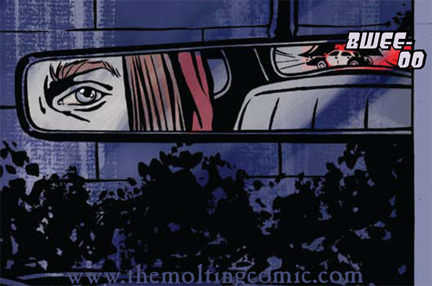
Taking in the ten plus pages of legalese and corporate jargon, I was stung with a shot of conflicted feelings. On the one hand, $875 simoleons for the use of one low-res image on a personal blog that doesn’t generate money seemed like highway robbery. On the other hand, I had been caught using something that wasn’t mine.
I considered my options: ignore, pay, or fight.
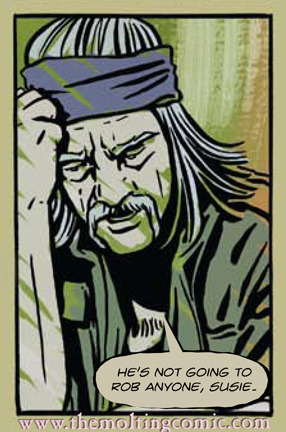
Option One: Ignore. Instinct told me that if I disregarded the letter, the case would disappear.
Considering the hotbed of copyright infringements that is the internet, I figured that a third party collections agency, working on commission for Getty Images, had probably sent out thousands of identical letters. The aim: shake easy money from the cyber tree. In other words, based on the law of averages, the agency would bank on a handful of recipients, businesses mostly, forking over the ordered cash, no questions asked. As such, they weren’t going to waste extra time or resources chasing down broke individuals like me. No, I could just remove the evidence from my blog (even though the settlement stated that ceasing use of the image didn’t release me from payment responsibilities) and act like the whole affair never happened.
Option One seemed an easy scenario, but something about it didn’t sit right, so I considered the next alternative.
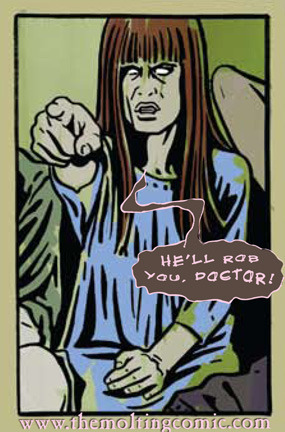
Option Two: Pay. As an artist trying to scratch out a living, who feels the crippling effect of internet piracy on his industry, a part of me said it was my duty to atone.
I strongly agree with Getty Images’ stance that just because something’s online does not make it free. To that end, unlike much of our generation, I pay for music and movies and am happy to do so… but then again, $875 big ones is a lot to demand for the limited use of a single photograph. I’ve spent less dough on entire professional shoots.
Even if the sticker price was reasonable, however, it’d be irksome to fork over that kind of moolah knowing that most of it, if any, would not be going to the photographer, but rather some bottom-feeding collection agency; the sort of firms that care only about infringements on intellectual property when it earns them an easy buck. Sure, they’ll go after individuals, but I doubt we’ll see them serving likeminded legal papers to any of the major image and video-sharing sites who generate billions of dollars hosting other people’s content without their consent, and for free. A wise friend of mine compared these sorts of collection opportunists to looters during the L.A. Riots who paid lip service to civil unrest over social injustice, but really just wanted an excuse to steal TVs.
Even if I had near a thousand extra dollars lying around to spend on a photo, indignation wouldn’t allow me to stomach such a transaction… so I explored my third, final option.
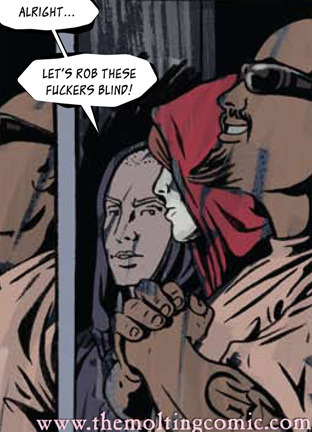
Option Three: Fight. After much soul-searching, it became clear that my issue with Getty Images was that the settlement demand seemed incommensurate with not only the crime, but with the times in which we live.
The fact of the case was, in September of 2012 I used an unauthorized image to illustrate a point on a free blog in the same way that so many of us do whenever we hit a “share” button. To that end, I initially found the image in question on somebody else’s blog, and this version of the picture—unbeknownst to me at the time—was considerably altered from the one that Getty Images had claim over: the JPEG was a collage of two photographs, each photograph covering half of the other. As such, was Getty Images entitled to a 50% judgment?
Photographic rights have always been complicated to me. I believe the law states that if you took the photo, you own the photo. But, as a hypothetical, let’s say a photograph features a dog, wearing a handsome scarf, standing in front of a tall building. Presumably the photographer didn’t design the skyscraper, or the stole wrapped around the dog’s neck, and may not even own the pooch. Would the architect, fashionista, and gay pet owner also have title to the theoretical photo? If so, how much? Further: in a modern context, portable devices and downloadable photo-filters and image-sweeteners have turned everyone into armchair paparazzi. With single-click gizmos dramatically shaping most photographs, what percentage of any modern image can truly be called proprietary?
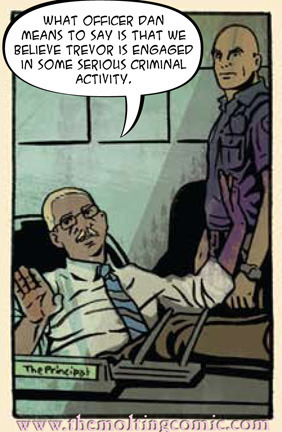
I reached out to Chris Bonifay, an attorney friend, for advise. He recommended I offer Getty Images a reduced sum to have them close the case. Based on cursory research, he felt that $200 shekels would satisfy them and protect me from future bindings. Even though I felt that $200 was over four times what the use of the image was worth, I made the offer. Getty accepted, and my surly solicitor made sure my ass was covered—thanks, Chris!
I chalked the experience up as a costly reminder to be more conscientious when it came to circulating online imagery. The $200 purchased not only piece of mind, but the ability to write freely about what I knew would make for a compelling online story. So, yes…. this blog post cost me $200.
I should state that the goal of this entry is not to undervalue or marginalize the practice of professional photography. Many of my friends are photographers, and I love the art form. In fact, I’m in the developmental stages of major site renovations to TZ.com. This remodeling will include provocative new photographs of me and my work… so, if there are interested, potential shutterbug collaborators in the Los Angeles area reading this post, feel free to share portfolio links in the “Comments” section below.
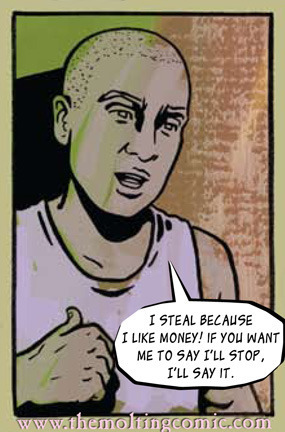
More importantly, I’m interested in hearing opinions from photographers in cyberspace on the subject of this blog. Have you had your images stolen? What do you do to protect yourself while trying to make a living in the current, digital marketplace? Non-photographers: how would you have handled the situation if you received a likeminded letter from Getty Images? All opinions are welcomed.
Terrance Zdunich's Blog
- Terrance Zdunich's profile
- 23 followers



